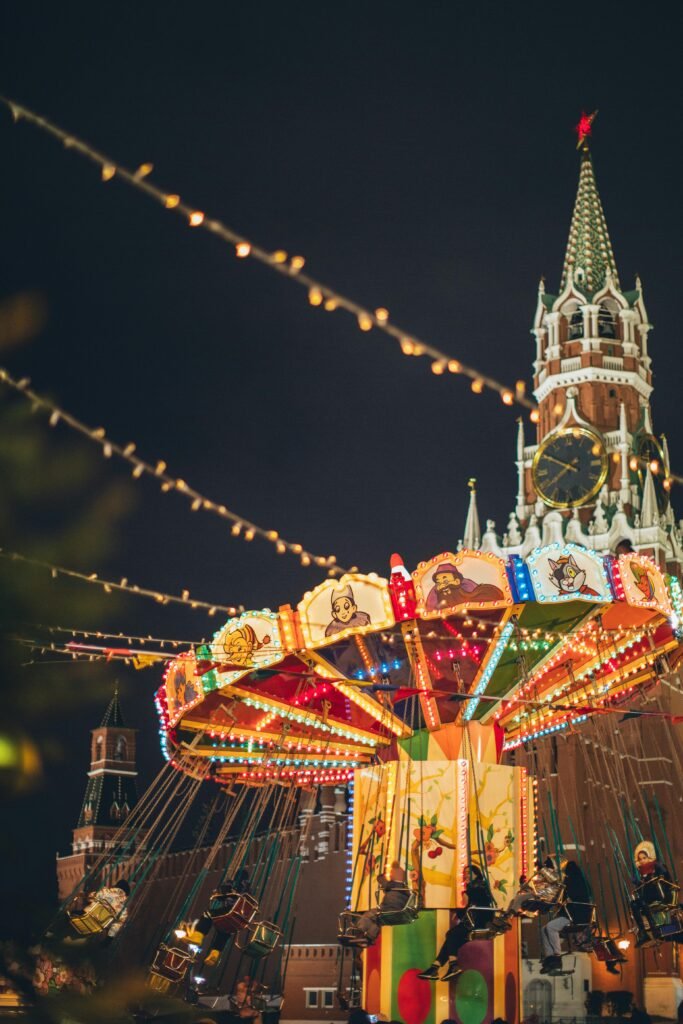Role Of Russian foreign policy in the world

Title:Role Of Russian foreign policy in the world
Abstract:
This study covers many aspects of Russian foreign policy and shows its historical development,
geopolitical strategy, and influence on the world stage. Since the collapse of the Soviet Union
in 1991, Russia employed a repositioning strategy aimed at consolidating its international position while championing the goal of " liberal democracy" and national sovereignty.
Research Begins with Research This book traces the history of Russian imperialism, tracing
its ideology and regional integration in the 18th and 19th centuries. After the 1917 Bolshevik Revolution and the Cold War, Moscow's global ambitions were further fueled; The collapse of the Soviet Union in 1991 was an important moment in the reorientation of foreign policy.
This article shows the importance of the principle of "freedom" in Russian diplomatic philosophy. Geoplitically, Russia has an important role in the post-
Soviet environment, positioning itself as a Eurasian power through measures such as the Eurasian Economic Union.
The European Union (EU) is both a partner and source of conflict, economic cooperation, and conflict, especially in regions such as Ukraine and the Baltic States.
Globally, Russia defends
ds Western hegemony by cooperating with China, participating in operations in the Middle
East (especially the ground war in Syria), and forming law-
breaking alliances around the world. Data analysis shows that Russia is rich. When analyzing Russian foreign policy, it is necessary to take into account to historical context, geopolitics
cal imperatives, and the complexity of contemporary geopolitics. Scholars such as Fiona Hill
, Clifford Gaddy, Samuel Challap, and Timothy J. Colton have delved into the misunderstanding
of Putin's leadership, the crisis in Ukraine, and the context of the History of the Russian
Revolution.
Academic journals, popular magazines, and opinion publications present a wide range of views and contribute to wide–
ranging discussions on Russia's international policy.
The framework creates an approach that combines historical context, regional power and
modern development. It shows the beautiful dance between Russia and the EU, cooperation
with China, the complexity of online commerce, and its impact on relations with the Western bloc.
The aim of this study includes research on the various roles of Russian politics, from its historical past to modern thought.
The study aims to shed light on key regional leaders such as
the Eurasian Economic Union, evaluate Russia's relations with the EU in the context of Territutorial disputes, and measure Russia's role as a counterweight to Western hegemony, especially in the Middle East. The research also explores the complex field of cyber operations and its impact on global relations and provides a better understanding of Russia's changing role in the world.
In summary, this work aims to stimulate scholarly discussion, stimulate debate, and provide a nuanced understanding of Russian foreign policy. By combining history, geopolitics, and modern science, the book attempts to unravel the complexities of Russia's influence on the
world stage.
Introduction
Russia's foreign policy combines past successes and positive goals. Following its imperialist
past, Russia has sought to strengthen its position on the international stage since the collapse of the Soviet Union in 1991. Based on Russia's understanding of " liberal democracy" it is
intended to be important in a democratic country and not accept anything from outside.
Affects internal affairs.
There is conflict with other countries. Additionally, from a geopolitical perspective, the country is a strong Eurasian power, wielding power in the post-
Soviet region through measures such as the establishment of the Eurasian Economic Union.
Cooperation and competition between Eastern Partnership countries and regions such as
Crimea and Ukraine are the subject of good relations with the EU. Internationally, Russia is
trying to balance Western dominance by improving relations with China and participating in operations in the Middle East, such as the ground war in Syria.
Despite cyber operations and sanctions, Russia's foreign policy remains strong and focused on supporting its interests. This is especially evident in recent developments in China.
Russian foreign policy plays an important but minor role at the world geopolitical level and
is characterized by the complex interaction between historical necessity, strategic maneuver
ability and a firm commitment to the preservation of national sovereignty. Russia's post-
Soviet foreign policy stems from the historical background of deep–
rooted imperialist ambitions and the aim of redefining its geopolitical position and exerciseing power in the world;
At this stage, big changes are taking place. The basis of Moscow's di
diplomatic philosophy is the principle of "sovereign freedom" as a bulwark against external a
aggression, especially from the Western Hemisphere. Geopolitically, Russia has positioned it
self as a strong Eurasian power not only through economic integration such as the Eurasian
Economic Union, but also through maintaining a dominant power in the country in the
Post-
Soviet environment. The EU is both a partner and source of conflicts through economic cooperation as well as geopolitical conflicts, especially in regions such as Ukraine and the Balti
c countries. Globally, Russia takes the role of analyzing and evaluating Western hegemony,
promoting the integration of cooperation with China, influencing the current decision, and providing support to many parts of the world
. Differences in the Middle East war zone have become an important part of Russia's geopolitical calculus, as it cooperates with countries such as Syria and Iran, and Moscow needs to not only protect its national interests but also deal with a web of interconnected regional conflicts. Meanwhile, Russia's involvement in cyber
activities and alleged interference in foreign elections have increased tensions with the Western bloc, leading to sanctions and difficult diplomacy. Various events in Russia fo
reign policy intricately intertwines historical narratives, geopolitical pragmatism, and the quest for global influence, exemplifying Russia's powerful role in shaping the contours of the
world order.
Historically Background
Russian foreign policy reflects a rich complex heritage that spans centuries. It exhibits the
dynamic interrelationship of geopolitical imperatives, imperial legacies, and the
imperatives of a shifting global order. Russia's early attempts into the global arena are
indicative of the Tsarist Empire’s aspirations for growth, which have their origins in the
large Eurasian countries. Russia's quest for more authority and ideals may be seen in the
annexation of areas like Crimea and the Caucasus in the 18th and 19th centuries.
The Cold
War resulted from the 1917 Bolshevik Revolution, which caused profound shifts in social
relations as the Soviet Union's authority grew fixated on ideology and attempted to export
political ideas. The fall of the Soviet Union in 1991 constituted an enormous transition. As a
result, Russia's foreign policy was realigned, with the newly established Russian Federation
attempting to reinterpret its global obligations. In reaction to Western intrusion, the idea of
" liberal democracy" evolved, emphasizing the value of defending national sovereignty
against outside meddling
. In terms of geopolitics, Russia is collaborating with its post-
Soviet neighbors—like the Commonwealth of Independent States (CIS) and the Eurasian
Economic Union (EAEU)—to further economic integration and project influence.
Despite being a commercial partner, the EU has turned into a cause of conflict, particularly
in regions like the Baltic States and Ukraine, illustrating the reality of the balance between
competition and collaboration. Russia has formed alliances with countries throughout the
globe to challenge Western dominance. Coalitions to fight global policies, particularly with
China. Moscow has been putting tremendous diplomatic effort into the Middle East, as seen
by the military involvement in Syria in 2015
. The Middle East has grown to be a major
theater of operations. In the meantime, claims of cyber-attacks and electoral meddling
abroad have heightened Western anxieties, resulting in political unrest and penalties. This
historical trajectory sheds light on the flexible character of Russian foreign policy, which is
marked by a difficult tango between continuity and change as it attempts to protect
Russia's interests and preserve its identity in the face of the world's increasing complexity.
Literature review
The paper on the worldwide role of Russian foreign policy provides a detailed analysis of
intricate elements including Moscow's global intersection. The historical background is
emphasized by academics, who point to Russia's imperial heritage, the Soviet Union, and
the post-Cold War era as significant influences on Russian foreign policy.
The idea of"liberal democracy" appears frequently, signifying Russia's will to preserve its
independence from Western intrusion. This research examines Russia's strategic goals
inside its society from a geopolitical standpoint, looking at concepts like the
Commonwealth of Independent States and the Eurasian Economic Union. The EU is notable
for its analysis of how to strike a balance between territorial conflicts and commercial
cooperation, particularly about Ukraine and the Baltic states. Researchers from all
around the world have looked into Russia's initiatives. Researchers from all around the
world are looking at Russia's attempts to stand in opposition to Western dominance. It
specifically looks at US collaboration with China and its position in areas like the Middle
East, particularly its involvement in Syria.
The book also outlines the intricate web of
sanctions and ties between Russia and the West, as well as the issues brought on by cyber
operations and purported meddling. All things considered, the book offers a clear
knowledge of many facets of Russian foreign policy and how it affects the global order. The
body of literature on Russia's foreign policy position on the world stage presents a dynamic
terrain molded by strategic realignments, historical legacies, and the intricacies of modern
geopolitics. Researchers go deep into Russia's search for a unique global identity,
examining how historical events—especially those of the imperial and Soviet eras—have
shaped Moscow's worldview. The idea of " sovereign democracy" acts as a focal point,
shedding light on Russia's steadfast dedication to defending its territorial integrity against
alleged Western meddling. Geopolitically, research examines Russia's sway over the area,
focusing on projects like the Eurasian Economic Union and its attempts to keep a strategic
hold over the post-Soviet sphere. In particular in contested territories like Ukraine,
relations with the EU have developed as a significant concern that is unaffected by
territorial conflicts and economic balances
. Russia's position as a counterbalance to
Western domination has been extensively studied by academics worldwide. In particular,
they have focused on Russia's impact in the Middle East, which is demonstrated by its
collaboration with China and its intervention in Syria. The paper notes the growing
challenges in Russia's relations with the West, which are frequently characterized by
sanctions and Byzantine diplomacy, and it also looks at the area of cyber operations and so–
called meddling. When taken as a whole, these materials offer a fair and comprehensive
overview of many aspects of Russian foreign policy and how it affects other
countries. Many scholars think it is important to understand Russian politics. Scholars such
as Fiona Hill and Clifford Gaddy have analyzed Putin's leadership in depth in their book Mr.
Putin: The Kremlin's Power in Foreign Affairs and Its Influence on Russia. Additionally, Sam
ul Challap and Timothy J. Colton's book Everybody Loses: The Ukraine Crisis and the Strug
glue for Democracy in PostSoviet Eurasia offers an account of Russia's intervention in the Ukraine crisis and its consequences.Nicholas Ryasanovsky and Mark Steinberg's History of Russia is an important work that provides a historical background for understanding Russ
Ian revolution. In The New Tsar: The Rise and Reign of Vladimir Putin, journalist Steven Lee
Myers explores Putin's personal and political history and sheds light on the state's current
foreign policy. Columns and articles in popular newspapers give a real-
life perspective on events
. For example, Angela Stent's articles in the New York Times and
Washington Post provides insight into current Russian foreign policy decisions. Moreover, A
Andrei Tsygankov's comments in the Guardian often give a negative impression of Russia's national standing.Academic journals such as "Foreign Affairs" and "International Relati
ons" are the regular newspapers of Russian politics. The works of scholars such as Maria Lippman provide critical analysis of Russia's international relations. Maria Lipman is a frequent contributor to many books. Reports from think tanks such as the Carnegie Endowment for International Peace and the Brookings Institution are useful resources. Reports are written by academics such as Dmitry Trenin, director of the Carnegie Moscow Center, often provide insight into Russian policy.
This literature review highlights differences that contribute to a
better understanding of Russia's political role in world politics; For example, read newspapers, and take into account the warnings from research and books. Scholars, journalists, and academics from a variety of disciplines come together to foster debate on complex and evolving
topics.
Framework
Literature and Commentaries on the Role of Russian Politics in the Global Structure offers a
rich and detailed study of historical context, regional perspective, and current developments. Analysts chronicle Russia's journey from the imperial era to the complex post-
Cold War era and highlight the lasting impact of its historical legacy on its prospects around the world
. Terms like "liberal democracy" are important and indicate Moscow's ability to
defend its independence and counter Western power. Scholars examine Russia's regional influence from a perspective, influencing initiatives such as the Eurasian Econo
mic Union, and assessing its actions in the post-
Soviet space.
There is a beautiful dance going on with the EU, especially in the Ukrainian context, with balancing economic cooperation and territorial disputes. Scholars around the
world, especially China, have studied Russia's participation in the alliance; He sees Russia as
an obstacle to Western domination and examines Russia's known role in the Middle East, especially Syria. The article also explores the complexities of cyber operations and so-
called interference and presents evolving challenges in Russia's relations with the West, which often manifest through sanctions and conflict diplomacy. Together, these rich studies paint a rich and comprehensive picture that sheds light on many aspects of Russian foreign policy and its profound impact on global change
. Research and analyze the role of Russian foreign policy on the world stage by delving into Moscow's diplomatic activities to illustrate the
process of interpreting history, complex ideas, and modern influences. Scholars challenge
Russia's history of global competitiveness, expanding the narrative beyond imperial history
and highlighting revolutionary changes in the country's foreign policy. The recurring theme of " liberal democracy" in these lyrics refers to Russia's rush to defend its national identity
in the face of Western aggression. Analyzing regional power reveals a complex web of geo
political considerations, with initiatives such as the Eurasian Economic Union and post-soviet
space strategies at the center
. Attention is focused on the complexity of Russia's relationship with the EU, focusing not only on economic cooperation but also on regional influence, particularly in conflicts such as Ukraine. Scholars around the world examine Russia's counter-vailing role against Western domination, examine strategic cooperation with countries such as China, and demonstrate Moscow's knowledge of violence in the Middle East, particularly the problems in Syria. Academic interest extends to the field of cyber activities and social interference and provides an understanding of the problems faced by Russia in its interactions with the Western bloc, characterized by penalties and problems. This rich body of research brings together historical perspective, geopolitical nuances, and contemporary measures to create a clear and diverse picture that captures the complexity of Russian influence
politics aimed at changing the world landscape.
Objectives of the Study
This study aims to provide a comprehensive and detailed analysis of the various roles played by Russian foreign policy in shaping today's world landscape. Through carefully designed
research, this study aims to reveal the historical background of Russia's foreign policy model, tracing its journey from imperial ambitions to the complexities of the post-
Soviet era. The purpose of this work is to conduct an in-
depth analysis of the main points of political activity in Moscow, focusing on the concept of
"democratic democracy" and its consequences in defending the country's independence against Western influence
. This study aims to reveal Russia's main goals and influence in society from a geopolitical perspective, to shed light on the problems of leaders such as the Eurasians Economic Union, and to analyze Moscow's strategy in the post-
Soviet space. The strength of the relationship with the EU will be analyzed to show the balance of trade and territorial disputes, especially in regions such as Ukraine. This study aims to explore Russia's role in the world as a count erweight to Western domination, particularly
to examine its strategic cooperation with China, and to evaluate its potential in areas such
as the Middle East, focusing on its influence in Syria. In addition, this study focuses on the complexity of cyber operations and the resulting impact and highlights the impact of Russia'
s changing relations with eastern states in the form of sanctions and political campaigns. Comining historical perspective, geopolitical nuances, and current evaluations, this study aim
s to better understand the driving forces, changes, and effects of Russian foreign policy in a
period of global changes.
Through this work, the research aims to stimulate academic debate, and dialogue, a better understanding of policy decisions, and an understanding of Russia's role in m
multicultural social networks and its implications for international decision-making.
Conclusion of role of Russian foreign policy:
In summary, Russian foreign policy is complex and arises from the dynamic relationship between historical legacies, advice needs, and challenges. The collapse of the Soviet Union in 1
991 was a turning point that led Russia to recalibrate its global stance as it emerged from it
s imperialist past. Moscow's foreign policy journey arose from its quest to strengthen its intenational position based on the principles of " liberal democracy" and send a strong message
ge about national sovereignty.
Russia claims to be a geopolitical power of Eurasia; Initiatives such as the Eurasian Economy
ic Union is among the examples of this. The beautiful dance with the EU reflects the relationship between economic cooperation and territorial disputes, especially in areas such as Ukraine and the Baltic states. In the post-
Soviet period, Moscow worked hard to influence and join organizations such as the Freedom
m Church and the Eurasian Economic Union.
Internationally, Russia is trying to bring peace to the Western-
dominated the Middle East by establishing relations and cooperation with China, especially in the Syrian war. Form a comprehensive alliance, especially with China, to challenge Western
hegemony and make Russia a major player in the world. The Middle East has become a major battlefield, and its involvement in Syria and cooperation with countries such as Iran reflect many aspects of Russia's involvement in the region.
Despite cyber attacks, sanctions, and allegations of election interference, Russia's foreign policy remains determined and focused on protecting its interests. Recent developments
in China show Moscow's flexibility and ability to follow the international market. The difference between historical narrative, geopolitical pragmatism, and the search for international
influence demonstrates Russia's important role in shaping the image of the world order
The historical context of Russian foreign policy, including the transition from the Tsarist E
empire to the Soviet era and the post-
Cold War period, shows the character of constant dance and constant change from change.
The transition from imperial ambitions to post-
Soviet complex demonstrates Russia's ability to adapt to global dynamics while maintaining
g its independence and protecting its national interests.
The review book provides a comprehensive overview of research and analysis of Russian foreign policy. Academics, journalists, and researchers from different disciplines come together to better understand Russia's role in world politics. Key works by Fiona Hill, Clifford Ga
day, Samuel Challap, and Timothy J. Colton Provide in-
depth understanding of Putin's leadership history, the crisis in Ukraine, and the transition to Russia.
Based on data and recommendations, this framework offers a way to analyze Russia's political activity in the world structure. It examines Russia's regional power, regional ambitions
and alliances, emphasizing the importance of concepts such as " liberal democracy" An over
View of Russia's relations with the EU, cooperation with China, and cooperation in the Middle
e East provides a good understanding of its foreign policy.
The purpose of this study is to make a detailed analysis of Russia. Historical context, people’s
political philosophy, and international impact of foreign policy.
This study shows that Moscow
seeks freedom of thought, and power in the post-
Soviet era, and a balancing role against Western domination
. Examining online commerce as a
nd changing relations with Eastern countries supports the analysis and helps to better und
erstand Russia's transformation into the world's major reformer.
In summary, this study contributes to the debate, stimulates debate, and provides insight into Russia's complex and changing political system
. By delving into a historical perspective, ge
political nuances and current measures, it provides a comprehensive overview of the drive
ers and consequences of Russia's role in shaping the world order
visit for more:https://timebuissnesnews.com/






